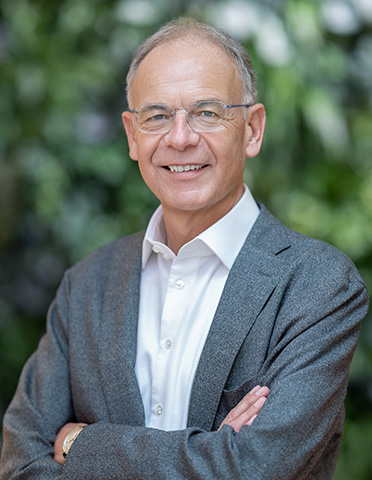Energy Efficient New Build & Renovation
Challenges
With the EU’s target to achieving a fully decarbonized building stock by 2050, significant efforts will be required in the years and decades to come to enhance the energy performance of buildings. Today, an alarming percentage of around 40% of Europe’s building stock requires urgent attention, necessitating renovations and retrofits to align with modern energy efficiency standards. This becomes critical as heating and cooling of buildings account for a considerable 40% of our overall energy consumption.
> 40 %
of European buildings stock is responsible of final energy consumption.
Vision
Confronting the pressing challenges of our time, wienerberger is leading the charge in pioneering eco-efficient solutions for sustainable and affordable housing through smart innovation, automation, and prefabrication techniques. Our dedication is manifest in our advanced strategies for developing new structures and upgrading existing ones. Our objective is clear: to markedly improve the energy efficiency of underperforming buildings, transforming them into models of climate-friendly design. In doing so, we aim to not only elevate living standards but also make a substantial contribution to a more sustainable future.
wienerberger’s portfolio for renovation showcases a diverse array of products designed to meet the growing demand for sustainable building practices. With a strong selection of solutions focusing on decreasing carbon footprints and operational expenses, our offerings are geared towards modernizing existing structures while prioritizing environmental considerations.
As the renovation sector expands, wienerberger is well-positioned to benefit from this trend, combining our products to a suite of solutions that respond to current standards and anticipate future developments in construction technology. This underlines our significant exposure to the renovation market and our potential to leverage market growth effectively. We envision a future where each building, whether new or old, is equipped with one solution that covers all its energy needs and will become a net zero building.

With our strong market position, our strategy is clear: We are developing an innovative and sustainable solution portfolio that not only meets the needs of the market but also continues to distinguish us as industry leaders. We’re not just keeping pace; we’re defining the future of sustainability and innovation in our sector,
Energy Efficient New Build & Renovation by the example “UK/Ireland”
In the face of current critical environmental challenges, the necessity to retrofit our homes for sustainability, energy efficiency, and responsibility has never been more critical. According to the UK government’s Net Zero Strategy, around 18 million homes currently hold an Energy Performance Certificate (EPC) rating of “D” of lower. Of these, approximately 4 million are social housing units: lower-cost rented housing provided by landlords and local authorities, which aim to provide affordable homes for lower-income and vulnerable tenants.
The UK government has set a target for social housing providers to achieve a minimum EPC rating of “C” by 2035. To this end, the government has allocated a fund of £ 1.4 billion for investment in the modernization and upgrade of social housing over a ten-year period. As a leading international supplier of innovative and ecological solutions for the entire building envelope in new construction and renovation, as well as for infrastructure in water and energy management, wienerberger offers solutions for these challenges.
The Renatus Project of wienerberger
With our expertise, a pilot project has been initiated in the UK to enhance the existing housing infrastructure. The initiative, named “Renatus”, transforms houses into eco-friendly dwellings that not only reduce CO2 footprints and operational costs but also improve the living standards for residents and lower lifetime costs for homeowners.
A demonstration of the Renatus approach is evident in the transformation of two post-war semi-detached bungalows. These buildings were initially below par in terms of energy performance – a common issue with constructions from this period. wienerberger launched a comprehensive program for assessment, testing, and modeling to identify energy savings and decarbonization improvements, adopting a “fabric first” strategy. This strategy prioritizes the energy efficiency of a property above all else. Energy efficiency is considered at every stage of the fabric first approach, especially concerning the building envelope.
With this strategy, it is possible to:
- reduce investment and operational costs
- improve energy efficiency
- reduce carbon emissions
Additionally, the fabric first approach reduces maintenance needs over the building’s lifetime, and wienerberger’s solutions thus significantly improve occupant comfort. According to estimates for the Renatus project, improvements in thermal efficiency, integration of low-carbon heating solutions, and photovoltaics, can reduce CO2 emissions by up to 95%, and operational costs by as much as 80%.
95 %
less CO2 emissions in the Renatus Project
After the project’s completion, the EPC ratings are expected to rise from “E” to “A”. This represents a significant and sustainable improvement and highlights the immense potential of using innovative wienerberger solutions.
To sustainably confirm the effectiveness of the Renatus project, three additional properties from different eras – the 1920s, 1970s, and 2010s – are currently being retrofitted. The goal here is also to implement current standards and future-proof the properties. After the renovation, the properties will be thoroughly assessed to confirm the effectiveness of the Renatus model, aiming to develop a replicable strategy for future projects and to underscore the effectiveness of wienerberger products.
The Renatus project is just one example that highlights the simple and sustainable use of wienerberger products. wienerberger’s commitment to promoting sustainable living is clearly emphasized. The projects, spanning various decades, represent a significant portion of properties in urgent need of renovation. A large number of these properties have an EPC rating of “C” or worse. With this challenge in mind, and practical projects underway, wienerberger positions itself as a strong competitor in the market, ready to meet the demands of sustainable future.


